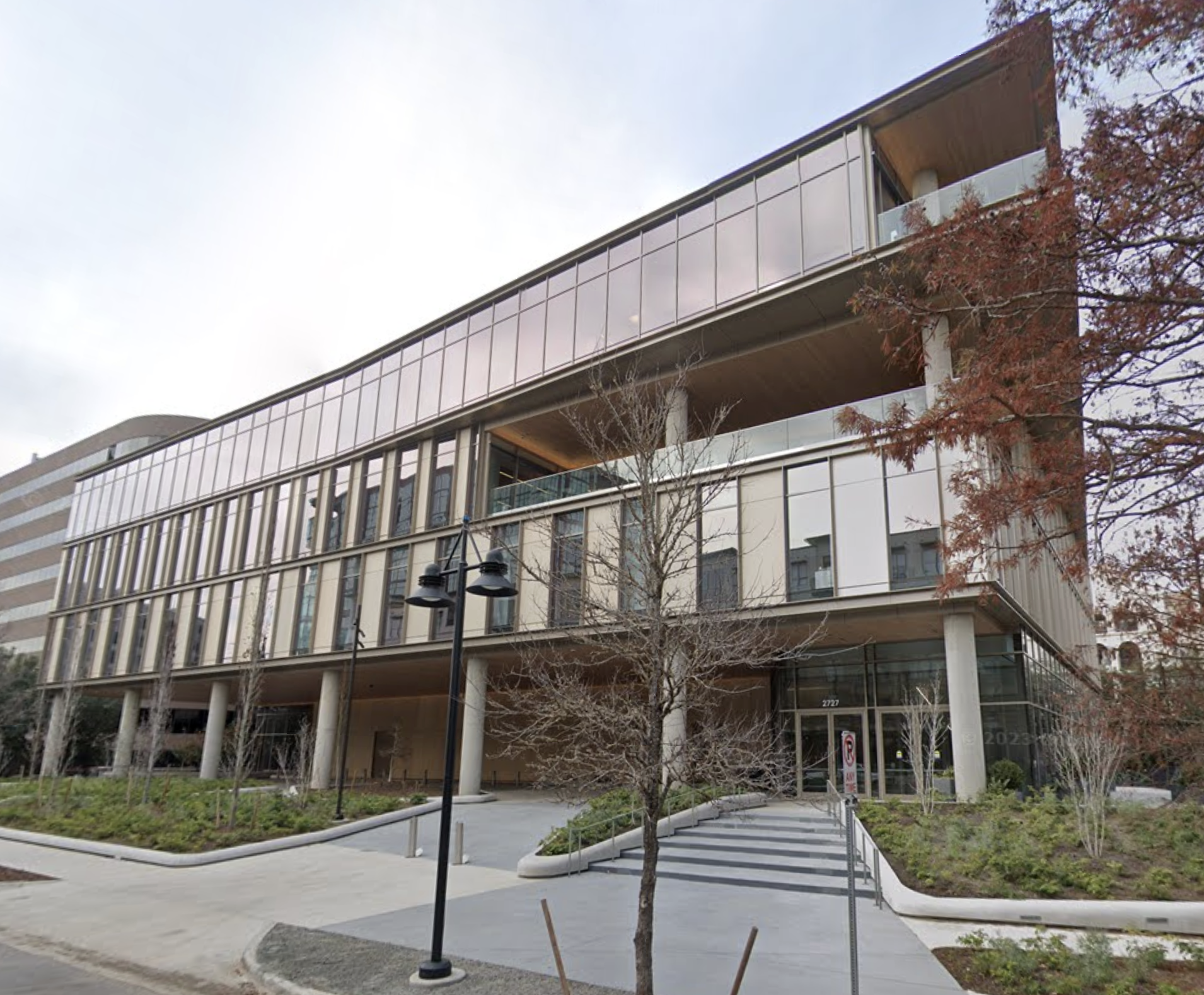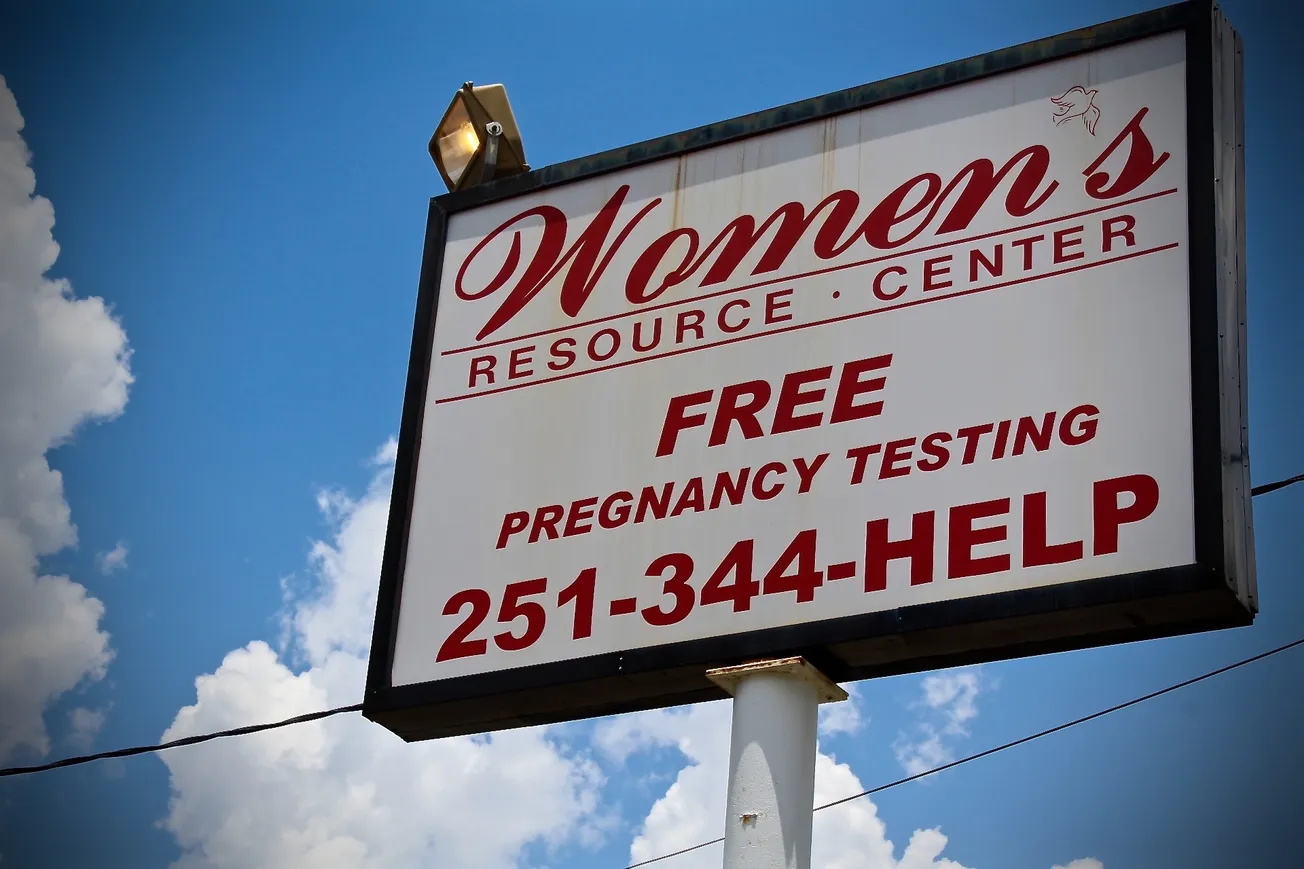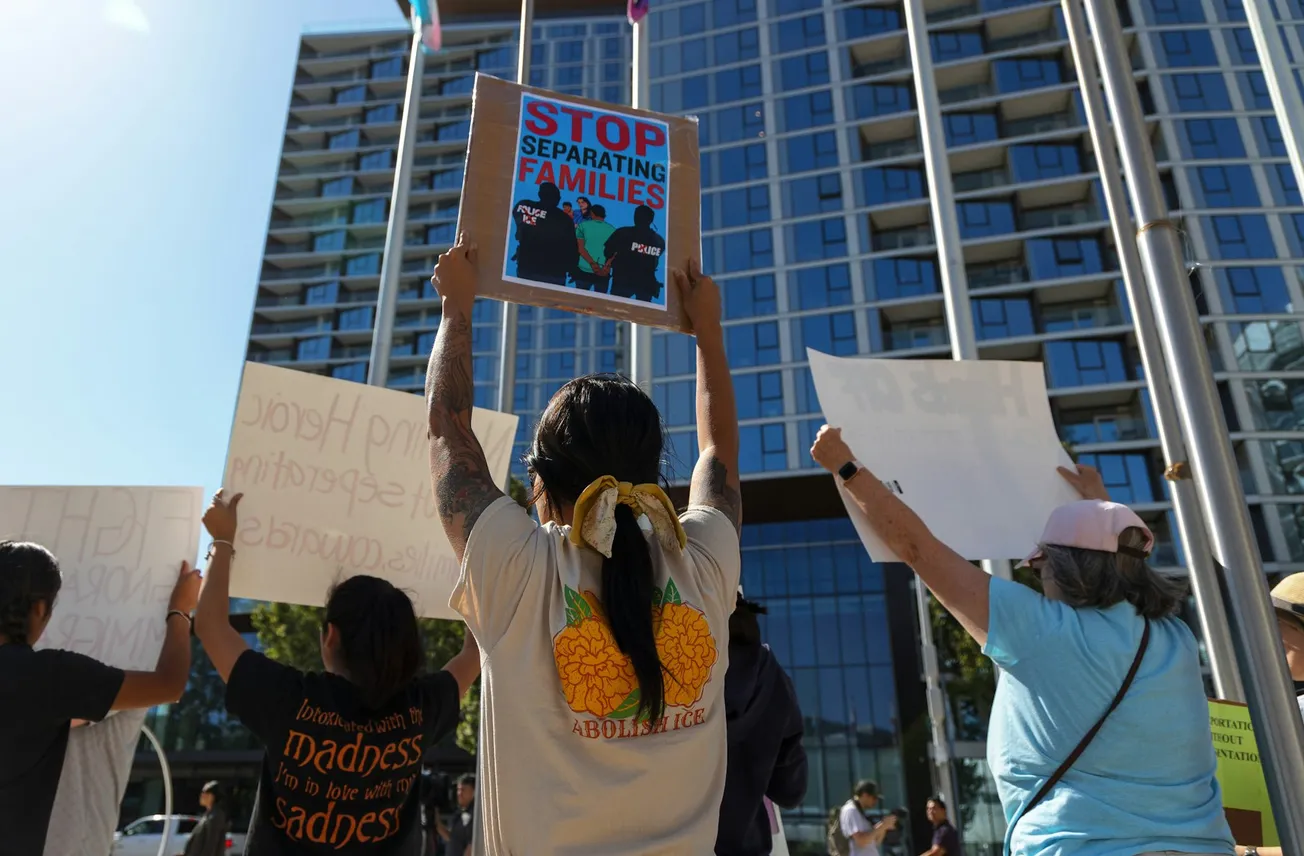In early April, seven abortion providers traveled to Texas. Prior to their trip, they were each required to submit a list of abortions they provided in the past year. Sharing this information made the providers worried, not only for their own legal and physical safety, but that of their patients from Texas, who had traveled out of state for care.
These doctors didn’t log their abortion cases at the behest of the Texas government, which has long been a pioneer in insidious regulatory schemes to limit abortion access. They did it in order to take a board certification exam at the American Board of Obstetrics and Gynecology’s Dallas headquarters.
Complex family planning is the newest official OBGYN subspecialty, focused on abortion and contraception. However, four doctors who spoke with Autonomy News said the disjointed rollout of the board certification process left them feeling “discriminated against” within their small professional community.
“It feels like, because I don't have the title of Associate Professor of something, that I'm not seen as doing this work in a way that's worth credentialing,” said OBGYN Emily Barker, a member of the first cohort to take and pass the subspecialty oral board exam this year.
Board certification was supposed to lead to “further legitimization of the field of family planning,” according to leaders at ABOG. Instead, doctors worry the controversy is putting the entire future of the subspecialty at risk.
Benefits of board certification
Fellowships are an optional form of high-level training for doctors who already completed medical school and residency. Some fellowships are approved by the Accreditation Council for Graduate Medical Education (ACGME), the same organization that regulates residency programs. Other fellowships are not accredited, a model some doctors prefer because of increased autonomy, flexibility, and better pay. The main difference is board certification: Physicians who complete an accredited fellowship can earn an additional board certification in their subspecialty. Those who finish a non-accredited fellowship still have fellowship training on their resume, but no certification.
The Fellowship in Family Planning, which offers advanced training and research opportunities in contraception and abortion, started at the University of California San Francisco in 1991. There are now 36 fellowship sites nationwide.
While the fellowship was not initially ACGME-accredited, this was a goal as early as 1999, according to the Society of Family Planning, a professional organization that supports the program. After being renamed to complex family planning (CFP) in 2018, the subspecialty became accredited in 2020, with board certification administered by ABOG.
And that’s when the trouble began—or at least, when it bubbled to the surface.
‘It didn’t feel safe’
The board certification process is largely the same for OBGYN and its subspecialties. There are two steps: a written qualifying exam and an oral certifying exam. These tests are taken more than a year apart, and in the intervening time, doctors collect case reports from their professional practice. It’s these reports that examiners test them on in the oral exam.
As ABOG phased in board certification, the CFP fellowship class of 2023 was the first required to undergo this two-step process. The oral exam was offered for the first time in April of this year—at ABOG’s testing center in Dallas.
ABOG’s requirement that OBGYNs travel to Texas for oral exams was already controversial. In 2021, many criticized ABOG’s choice not only to remain in the state, but to build a new headquarters there after the implementation of the near-total abortion ban known as SB 8. There was further outcry when, in 2023, after several years of virtual oral exams due to the pandemic, ABOG returned to an in-person model—with no exceptions—even as other specialties, including general surgery, remained virtual.
Debate raged within the CFP community, with one prominent physician writing in the journal Obstetrics & Gynecology that he would boycott CFP board certification because of ABOG’s location. In response, a Texas abortion provider wrote that such a boycott would be “performative.”
Newly board-certified CFP subspecialist Abby Liberty, who took the oral exam this year, said her cohort asked ABOG for a virtual option several times—not because of ideological opposition to ABOG remaining in the state, but for security reasons. “It didn’t feel safe to travel to Texas for an exam that's related to being an abortion provider, where the date and location are visible to anybody on a [public] website,” she said.
While all OBGYNs should be trained in abortion care, per ABOG’s standards, CFP providers specialize in it. Every person taking the exam submitted proof in advance that they provide abortions—something fewer than a quarter of OBGYNs do.
But the answer from ABOG was no.

If a security plan was in place, doctors said ABOG did not communicate it to them. So, Liberty’s fellowship class did their own security assessment and planning. They reached out to the Abortion Defense Network, a group that connects providers with attorneys, for help with personalized legal risk assessments and emergency plans.
Doctors told Autonomy News that, thanks to this advice, their concerns about the legal risks of traveling to Texas were largely assuaged. But their physical safety concerns remained, even during the exam. “The testing rooms have floor-to-ceiling windows,” Liberty said. This made it difficult to read ultrasounds—a critical part of the exam—and left test takers nervous about who might be able to see inside.
ABOG examiners even asked the candidates to take a selfie that would ostensibly have been shared publicly, said Sharon, another OBGYN who passed the oral exam, but asked to be identified with a pseudonym because of employment concerns. “In the social and legal climate that we're in, it was extremely tone deaf,” she said. Sharon’s test group declined the photo.
Anti-abortion activists have murdered providers in the past, most recently Dr. George Tiller in 2009, which was on Sharon’s mind. “Just because it hasn't happened in a while doesn't mean that it can't happen,” she said.
Barker was 22 weeks pregnant when she traveled to Texas in April. “My personal safety concerns around the ways that hospitals might define fetal viability differently than I do, and what to do in case of an obstetric emergency for myself, and traveling in the midst of a nationally publicized measles outbreak, were colliding with these legal and political concerns,” she said.
For a pregnant physician unable to travel to Texas, the only option is to take the oral exam another year. Job offers, salaries, and even the amount of time doctors get to spend with patients are often contingent upon board certification. Doctors said an eighth member of their cohort was unable to take the exam because she was too far along in her pregnancy to travel.
"Unfortunately, I feel like ABOG’s stance is, 'nothing has happened.' We view it more as, 'nothing has happened yet.’"
In a statement provided to Autonomy News, ABOG said it partners with University of Texas Southwestern to provide urgent medical care to examinees when needed, including those who are pregnant.
As to security concerns, “the ABOG National Center is not identifiable publicly as no signage exists, and robust security protocols are in place. For purposes of security, we do not offer explicit details regarding security measures,” ABOG wrote. “A national review of alternative venues has not identified a viable substitute commensurate with our current and required exam facility standards.”
However, Autonomy News easily identified ABOG’s location on Google Maps. (The listing was removed during the reporting process for this story.) There are also photographs of the building on ABOG’s website, in news articles, and on its engineer’s website. An archived version of ABOG’s website shows that its address was posted there as recently as May 1. It has since been removed.
“Importantly, while a range of examination dates is published for candidate and examiner convenience for planning purposes, individual candidates’ testing dates—whether for specialty or subspecialty exams—are never publicly disclosed and are communicated directly and confidentially to each candidate,” the statement continued. “To date, there have been no verified incidents of physical harm to candidates or examiners across thousands of in-person examinations.”
It is true that the dates publicized were a range—April 7 through 10—and exams for all OBGYN subspecialties, not just CFP, happened during that time. But doctors said they still aren’t convinced that ABOG employed the same level of security planning that other organizations like the National Abortion Federation (NAF) and Society of Family Planning do.
“Unfortunately, I feel like ABOG’s stance is, ‘nothing has happened,’” Sharon said. “We view it more as, ‘nothing has happened yet.’”
Pressure is mounting: Last week, a coalition of 20 state attorneys general urged the American Medical Association (AMA) to adopt a stronger position on the need for alternatives to in-person board exams held in states that restrict abortion and gender-affirming care. Though the AMA does not have direct power over ABOG, its adoption of a formal policy—beyond just “encouraging” alternatives—would carry significant weight. In a recent email shared with Autonomy News, NAF urged its members to submit comments to the AMA on the issue as well.
Rules bent for some, others excluded
This year’s examinees said ABOG’s dismissal of their concerns was particularly galling in the face of exceptions they made for others.
For example, when ABOG rolled out board certification starting in 2022, there was a special pathway for those called “senior candidates”—OBGYNs who had completed a family planning residency in the past, before it became accredited. These physicians were only required to take a locally-proctored written exam. But pushback from the broader OBGYN community was swift, Liberty explained, with generalist OBGYNs and maternal-fetal medicine specialists arguing that senior candidacy should be extended to them as well, because their employers might restrict abortion provision to board-certified CFP subspecialists alone.
In response, ABOG expanded senior candidacy to any OBGYN who attested that at least 30 percent of their practice was dedicated to abortion and contraception—casting a net so wide that Liberty and Barker said residency colleagues of theirs who hadn’t completed fellowships were able to become board-certified in CFP before they did.
The 2023 graduates didn’t all oppose this change, because they didn’t want to see the ranks of abortion providers further thinned. But they did ask ABOG to extend the same flexibility toward them when it came to the in-person exam and other issues they encountered. Instead, in a meeting, members of the ABOG CFP division committee “called us ‘ungrateful’ for our training,” Liberty said.
For Liberty, the various disputes around CFP board certification can be summed up with one word: “gatekeeping.” The gatekeeping began, she explained, before the issues with the exam. It started with the choice of ABOG to be CFP’s sole certifying organization, which made board certification exclusive to OBGYNs. Prior to accreditation, some family planning fellowships had been open to physicians from other specialties, primarily family medicine.
There is still a one-year, non-accredited abortion training fellowship available to family physicians—meaning no board certification. Many dual-sponsored subspecialties exist, one of which is even under ABOG’s purview: Urogynecology and Reconstructive Pelvic Surgery, which has board exams administered by ABOG for OBGYNs and the American Board of Urology for urologists. It’s unclear why a similar route was not pursued for CFP.
“There are very clearly family medicine physicians for whom this is their entire practice,” said Diane Horvath, owner of Partners in Abortion Care and a fellowship-trained complex family planning specialist certified via the senior candidate process. “We employ one, who is an expert, has been doing this for years, and is a third-trimester provider. She should have been eligible to take this exam.”
In a January 2022 letter published in Contraception—the Society of Family Planning’s official journal—family medicine physicians Robin Wallace and Grace Shih argued that establishing CFP as an OBGYN subspecialty obscured the contributions of other abortion and contraception providers, like family medicine doctors and advanced practice providers (APPs), such as physician assistants and nurse midwives.
“Primary care and non-physician providers represent a plurality of the family planning workforce in underserved areas—in community health centers nationwide, family medicine and general practitioners make up 50 percent of all physicians, while OBGYNs are 10 percent, and APPs outnumber physicians,” they wrote.
Some providers, Horvath said, also raised concerns that the choice to make CFP certification-eligible could be weaponized to further restrict abortion access. Roughly half of states limit abortion provision to physicians, and some only allow board-certified OBGYNs to offer the care. Now that there is an abortion care subspecialization, many feel it’s only a matter of time before states narrow the pool even further to only CFP-certified OBGYNS.
“Why would we hand something to these hostile legislatures?” Horvath said.
Even stricter requirements going forward
Though this year’s exam is over, critiques of ABOG have only intensified. In addition to continued controversy over the in-person exam, many board-certified and board-eligible CFP providers have spoken out about the case list requirements, which are far more extensive for next year’s exam.
In particular, doctors point to a new requirement that case lists include 50 dilation and evacuation (D&E) procedures, the most common method of second-trimester abortion. By contrast, this year’s examinees were required only to list a minimum of 20 abortion cases, with no gestational age requirements.
Barker said it would be near-impossible to perform this many D&Es in a restricted state. “If a graduate of a family planning fellowship goes to somewhere like South Carolina, or Texas, or another ban state, and only occasionally does those medical emergency abortions that are allowed under state law, that person won't have as many of those cases,” she said. “Is ABOG saying that those people aren't complex family planning specialists? Their job doesn't matter?”
And again, there are security concerns. “The case list requirements are public,” said Lucy, a physician who asked to use a pseudonym because she has not yet gone through the board certification process. “For next year's exam, people will know that the doctors in that building that day will have done 50 second-trimester abortions.”
The requirements also include at least five permanent sterilizations and management of at least 10 abortion complications—forms of care that are typically provided in hospitals, not the outpatient settings where a majority of abortion providers practice. And physicians aren’t allowed to include cases they managed during their fellowships.
In a recent survey circulated in an internal Society of Family Planning forum, 47 percent of respondents who were already CFP-certified via the senior candidate process said they would not be able to meet the new requirements. That’s according to a letter sent to ABOG and signed by 44 board-certified and board-eligible CFP subspecialists. One of the signatories shared the letter with Autonomy News on the condition that names be withheld.
The doctors’ letter to ABOG was 10 pages long. It laid out all these issues, and included examples from other medical specialties that have moved away from requiring in-person exams and case lists. In response, ABOG said it had passed the letter on to its CFP division, made up of six academic clinicians, for consideration. ABOG also asserted that case list requirements are largely the same across subspecialties, and directed doctors to its FAQ about travel to Texas.
“The FAQs do not adequately address legal risks, patient privacy, personal safety, or capture the nuance and uncertainty of shield law reach,” Lucy said.
Several of the physicians who spoke with Autonomy News said they had heard through fellowship program directors that CFP applications are down significantly following this extended dispute. Official statistics are not yet available for this year’s application process.
Concerns about privacy and future enrollment
Doctors aren’t only concerned for themselves. They worry that the case list requirements could cause confusion and mistrust on patients’ part—and violate patient privacy. “If I was a [Texas] patient that had an abortion out of state and then knew that my doctor was sending information about it to someone in Texas, I would be worried,” Lucy said.
Case lists are de-identified, meaning they don’t include information like names, dates, or locations more specific than a state, but anti-abortion activists and states alike have long been known to engage in surveillance of people seeking abortions. And because abortion complications, in particular, are so rare, doctors say that reporting them could be inherently identifying.
“We all know that there's a photo taken every time an ambulance leaves an outpatient abortion clinic,” Lucy said. “It would not be hard to pinpoint some of these cases back to the exact location and provider.”
And it’s not difficult to believe that officials in Texas—with their “bounty hunter” abortion ban and current attempt to target an out-of-state abortion provider—might want to obtain and misuse that information. Just last month, Texas officials conducted a nationwide search of automatic license plate reader cameras while attempting to track a woman who allegedly self-managed an abortion, according to 404 Media.
“It’s just a setup for something horrible to happen,” Horvath said. Providers’ concerns about the travel and case list requirements “are not the same as calling for a boycott on Texas,” she added. ABOG should listen to the providers most affected by their policies, she argued, and consider accommodations, including a virtual exam.
As for the source of all this conflict, Horvath put it simply: “It's the split between academia and everybody else,” she said. Several of the recent CFP graduates who spoke with Autonomy News agreed, pointing to the fact that the members of ABOG’s CFP division committee are all academic clinicians—that is, they work at teaching hospitals. Some of them also have leadership roles within the Society of Family Planning, which doctors felt failed to support them adequately. The Society referred questions about the board certification process back to ABOG.
“Outpatient abortion care is the vast majority of abortion care that’s happening in this country,” Horvath said. “The idea that the hospital is the standard of care for abortion is false.”
As a provider of later abortion care, Horvath said she gets referrals from hospitals “regularly,” because hospital policy often limits abortion care beyond what state law allows. “You all are sending us your patients, and we feel like second-class citizens in our own subspecialty,” she said.
This story was edited by Susan Rinkunas and copy edited and fact checked by Hannah Rappleye.









